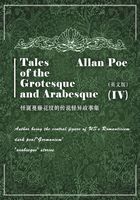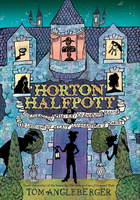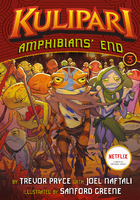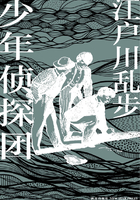Are You Crossing a Desert or Climbing a Mountain?
Upon the endless sand dunes The camel shall always rule. But it’s wiser in the mountains To ride a stubborn mule.
—Desert proverb
The Sahara is the largest desert on earth, covering an area approximately the size of the United States. My buddy Tallis and I were halfway across it, camped on a rocky hill in open desert a thousand miles south of the Mediterranean, with another thousand miles of sand dunes and sandstorms ahead of us. We were quite literally in the middle of nowhere.
The blistering Saharan sun had just set, bringing the evening’s cool relief. But we both knew that within an hour the temperature would drop almost 40 degrees, and by midnight we’d be shivering in our sleeping bags beneath a breathtaking canopy of icy stars. We were several miles south of the Algerian oasis of Tamanrasset. We had no vehicle. We didn’t know how we were going to continue heading south across this seemingly endless desert. I didn’t know when or if we’d make it to the other side. I didn’t even know where the other side was. It wasn’t in Algeria—I knew that much. Was it in Niger?
“Where does the Sahara actually end?” I wondered aloud.
“Are you talking to me?” Tallis asked.
“Not really; just wondering if we’ll ever make it across this desert, and if we do, how long it will take.”
“I haven’t a clue. We may never make it to the other side.
All I care about right now is getting this fire started so we can cook some dinner before it’s completely dark.”
Tallis busied himself with the fire. The predictably cloudless sky was bluish black above us, and a single bright star already sparkled. To the west, the sky was still glowing, like a blast furnace whose fuel supply was being quickly shut off.
Tallis looked up from the fire and scanned the horizon.
“Shit!”
“What?”
I followed his finger to a speck on a distant dune. As soon as I saw it, I scrambled to my feet and quickly started dousing the fire with sand.
Life, especially during a time of change, is like crossing the Sahara. The journey seems endless; we get lost, we get stuck, and we chase mirages. While crossing the Sahara, it’s difficult to tell when you’ve arrived at the other side. Much of life is like that. You can’t see your goal. You can’t tell when you’ve arrived. What is the goal of life itself?
Being a parent is like crossing the Sahara. How do you know when you’re done raising your children? When they move out? When they get married? When they stop borrowing money? When they forgive you for being imperfect? Even those who have lost a child remain parents because they will always carry the pain that is unique to one who loses a child. Parenting is endless. And while it is for many of us the most rewarding experience of our lives, there is no mountaintop, no summit we can look down from and say, “I’ve made it. My job of parenting is over.”
The never-ending, never-arriving aspect of life can frustrate us because our dominant cultural metaphor is more about climbing mountains. We live in a goal-oriented, achievement-focused, results-driven culture. Defining problems, setting targets, and implementing plans are seen as the solutions to any and all of our challenges. This is a mountain-climbing ethos.
Mountain climbers can see their goal. The peak is visible. It inspires and guides them to the top. If you reach the summit, there’s little doubt about your achievement—you know when you’ve made it. Mountain climbing is about the destination. It means that you have a goal that is tangible, with a describable end result. Saving for retirement is a good example of climbing a mountain. Your goal is definable. You know how much money you will need to retire in comfort.
However, if your goal is vague, is difficult to describe, or sounds more like a way of being than an end result, you are crossing a desert. Think of marriage. Couples never say, “Let’s get married and see if we can reach the 50-year mark.” People marry to be happy, to support one another, to have a family, and to share life together. These reasons describe a way of being, not some specific end result. Deserts are about the journey. So marriage is a desert.
Mountain climbers not only have a clear goal, but they have an idea of how long it will take to reach the summit. They plan on a specific time frame for accomplishing their objective. A financial planner can show you how long it will take to reach your retirement goals based on your finances and lifestyle.
But there’s no such thing as a divorce planner, who can print out a timetable outlining when you’ll finally be healed from the pain of that desert. No one knows when a midlife crisis will be finished. Members of Alcoholics Anonymous still call themselves alcoholics even if they haven’t touched a drop in 30 years. Deserts seem endless, or at least it’s very difficult to predict how long it will take to cross them.
Mountain-climbing techniques don’t work in the desert. To successfully cross the Sahara or a desert of life, you need to follow the rules of desert travel. But first you need to know the difference between a mountain and a desert.
In the waning twilight, the glowing western sky outlined a distant figure moving steadily toward us, along the ridge of a sand dune. His erect posture, graceful movement, and long blue robes told me he was a Tuareg, one of the famed nomads of the central and southern Sahara. They are also known as the “blue men of the desert,” for the cobalt hue of their dark skin, which comes from the dye in the turbans, or cheches, that cover their faces and heads.
“Leave the fire alone,” Tallis cautioned. “He’ll think we’re afraid.”
“I am afraid!” I shot back.
“He’s already seen it, anyway. Just relax. It looks like he’s alone.”
The Tuareg first appeared in the Sahara a thousand years ago. No one knows where they came from. The fact that their origins have remained a mystery only adds to the romantic image of the noble desert nomad. A warrior people, they ruled this harsh land for more than a millennium, often clashing among themselves before the French arrived in the 1860s. The Tuareg considered the French cowards for using rifles, and they attacked the French with drawn sabers, riding their fleetest camels. They were eventually subdued in the early 1900s, but many of the Tuareg continue their nomadic lifestyle, often ignoring the borders that define postcolonial Sahara.
The nomad arrived at our campsite a few minutes later. He was slim, with a fine aquiline nose and a regal bearing. He spoke to us in heavily accented French.
“Un peu de sel, s’il vous pla?t.”
I anxiously searched around in our kitchen supplies and gave him all our remaining salt. I knew that salt was precious in this part of the desert. It was literally worth its weight in gold during certain periods of the caravan trade. Without a word he was gone, and we watched as he retraced his steps into the desert evening.
“Do you think he’s alone?” I nervously asked Tallis.
“How should I know? I’m no expert on Tuaregs.”
“I heard that they carry a really nasty dagger underneath those blue robes,” I said.
“Well, we’re in trouble if he uses that dagger. We’ve got nothing to defend ourselves with but this frying pan,” Tallis responded.
“What if he comes back? What if he’s not alone? What if he doesn’t want salt at all and he’s just checking us out?”
“Would you stop with the questions!” Tallis snapped. “I don’t know. No one knows. We are in the middle of the Sahara Desert. There is at least one nomad in the area—maybe more. That’s all we know.”
“Yeah, but I can’t stand not knowing what he wants or what to do if he comes back. I can’t stand not knowing how we’re going to get out of this place. We don’t have a car. We don’t have a plan. We don’t know what we’re doing tomorrow or the next day. We just sit and wait for something to happen.”
“Like I said, we’re in the middle of the Sahara Desert,” Tallis shot back emphatically.
“Shhh! What’s that?”
“Someone’s coming!”
Preparedness, planning, and past experience make a difference when it comes to climbing a mountain or completing a project. If you’re building a new house, you hire a contractor with a proven record. The builder constructs your home from a plan by a reputable designer or architect. Delays and challenges may arise, but there is an obvious link between the three Ps and your chances of success when you start climbing toward a goal.
Deserts are different. The Sahara can frustrate a Land Rover full of German engineers with a GPS guidance system and enough spare parts to build a new vehicle from scratch. On the other hand, a beat-up VW camper with bald tires can take half a dozen ill-prepared students safely over unmapped dunes and past bandits to the sun-drenched beaches of West Africa.
Experience and preparedness don’t guarantee success or swiftness in the deserts of life. A skilled therapist can be stopped in her tracks by her own midlife crisis. Her knowledge, degrees, and experience can’t help. The counselor needs counseling because she is in a desert.
In a desert it’s normal to feel inept. Your problem isn’t lack of planning. If planning really helped and if training really mattered, we’d take lessons on marriage as well as divorce. You’d need a license to have children. There’d be a test to pass, and you’d need to submit a plan for your child’s growth and learning before receiving permission to procreate.
Unpredictability and uncertainty are two hallmarks of desert travel. What is the route to raising a teenager? How can you predict what the economy will do to your struggling business? Like relentless sandstorms that torment you no matter how much you cover yourself, uncertainty is impossible to avoid in the deserts of life.
Anytime our lives seem uncertain and unpredictable, and planning and experience have limited value, we are in a desert. This is perhaps the most stressful and agonizing aspect of deserts and the main reason why we prefer mountains; mountains are less ambiguous. Running your first marathon is a difficult mountain to climb. There’s no guarantee that you’ll finish. But how to train for and run a marathon is mapped out and documented. The challenge is with your body and willpower rather than the shadowy foe of uncertainty. Better the enemy I can see than the one who is sneaking up on me.
Footsteps scrambling up the loose rock on the path to our campsite were getting closer.
“We need a plan. I think we can handle two or maybe even three of them,” I whispered to Tallis.
“Don’t be ridiculous!” he scolded. “There’s nothing we can do.”
I continued as if I hadn’t heard him. “They’ll be here any second. I’ll throw sand on the fire and you grab the frying pan and start swinging.”
“What if I hit you instead of them? Relax—let’s just see what they want.”
I turned around and the Tuareg who had come before was standing there. He was alone, holding out his hand.
“Un peu de poivre, s’il vous pla?t.”
It had grown dark, so I used my flashlight to locate the pepper shaker. I passed it to him, hoping that he wouldn’t see my hand trembling. I noticed his eyes quickly survey the rest of our supplies. Without a word he turned away from the faint light of our small fire. The night quickly swallowed him up.
Neither of us knew what to make of it. The nomad’s actions seemed innocent enough; it wasn’t much different from your neighbor borrowing a cup of sugar. But I’d read how the Tuareg would approach caravans, posing as friendly guides. Often numbering in the thousands of camels, the caravans would be strung out for miles across the desert. After identifying the most vulnerable sections of the train, the Tuareg would take their leave, returning later to attack and rob the caravan of everything of value.
“So much for your frying pan plan,” Tallis grumbled.
“Did you see him? He’s checking us out. It’s the Tuareg version of casing the joint. We’ve got to take some action. Either we get out of here while we have a chance, or we prepare to defend ourselves. Maybe we should sneak up on them and see what they’re doing.”
“Just cool it! We don’t even know if there’s more than one of them! We have to sit tight. We’ll cook some dinner and sleep in shifts.”
At that moment I hated the Sahara Desert. I hated Peter O’Toole for making deserts and nomads seem so romantic in Lawrence of Arabia. This wasn’t romantic at all. I hated feeling so alone, so exposed and ill prepared, in a place of such uncertainty. Straining to hear any new sounds of footsteps, I began opening a can of beans. Tallis put the remainder of our twigs on the fire.
Most of us don’t like vagueness, ambiguity, or paradox. We don’t like being lost or asking for directions. Uncertainty isn’t tolerated well in our society. Western culture, and in particular North American culture, is about knowing where you are and getting the job done.
To be fair, our problem-solving, goal-setting, and persevering attitude has helped us accomplish great things. The can-do credo of Western society has cured horrible diseases, put a man on the moon, built the Panama Canal, and invented heated toilet seats. Our culture has perfected the art of achievement. We know how to “just do it.”
But much of life is not at all about achievement, success, or goals. Life is often about being lost, finding ourselves, getting stuck, getting unstuck, following a mirage, and then finding our way for a while until we get lost again. Much of life is like a desert, not a mountain.
There are two kinds of metaphorical deserts. The first and most noticeable is a desert of change. This is a period of significant, fundamental, and sometimes rapid change. Deserts of change include such transitions as divorce, losing your job, the death of a loved one, a career change, starting a new business, becoming a stay-at-home parent, reentering the workforce after being a stay-at-home parent, a merger or reorganization at work, coming out of the closet, caring for an ailing parent, or a midlife crisis, to name just a few. Deserts of change may seem endless while you are in the midst of them, but in hindsight they are finite and usually more intense than the other type—the desert of life.
A desert of life is also a time of transition, but the change is more gradual and less noticeable because it is spread out over a longer period. Raising a family, marriage, a career, and retirement are some examples. Deserts of change can seem like interruptions in your life or detours; deserts of life seem like life itself.
Crossing either type of desert will change you. We are not the same person when the kids leave home as we were in the delivery room. When you finally get back on your feet after a brush with bankruptcy, you aren’t the same person who got into trouble with debt. If joining Alcoholics Anonymous or another 12-step program doesn’t change you, then you never really committed to the journey. That’s why deserts scare us. Deep down inside, a part of us knows that something’s going to change and we can never know in advance what it will be. No wonder that we’d rather climb a mountain.
A mountain in the Sahara.
The Sahara contains several impressive mountain ranges: the Hoggar, in Algeria; the Tibesti, in Libya and Chad; and the Air, in Niger. Within our deserts of life and change there are always mountains to climb. These are the singular challenges, projects, and dreams that have specific goals—end results that we desire or strive for.
Changing jobs is a mountain, but changing careers is a desert. Having a baby is a mountain, especially for the mom. But raising a child is a desert. Building your dream house is a mountain. Losing your dream house in a divorce is a desert. Beating cancer is like summiting Mount Everest. Living with a chronic or terminal illness is like crossing the Sahara.
Are you climbing a mountain or crossing a desert? Maybe you are doing both at the same time. Treat them differently. Cold, stiff alpine boots will just give you blisters on the hot, drifting sands of change.
Night had fallen. We could see nothing outside of the small circle of light cast by the glowing embers. It had been almost an hour since the Tuareg had last visited us, and I was beginning to relax a little.The apartment I’d been sharing in Paris now seemed very far away. My home in Toledo, Ohio, was on another planet, another lifetime ago. I was 20 years old, on the verge of manhood, and at a loss for what to do. How on earth had I ended up in the middle of nowhere, in a tribal land where desert clans wrote their own laws? How was I going to get out of there?
“Hey Donahue!” Tallis called.
I looked over to him and saw that we weren’t alone. The Tuareg had returned. He stood still, without speaking. I became uneasy with the silence, so I asked him what he wanted.
“Qu’est-ce que vous voulez?”
“Venez avec moi,” he responded.
I couldn’t tell if his words were a command or an invitation. He wanted us to come with him. My dry mouth and pounding heart prevented me from speaking. I imagined the rest of his clan waiting for us on the other side of the sand dune with their knives drawn. Was this a trap—an ambush enacted upon hapless travelers in the empty, lawless realm of the desert? Without waiting for our reply, he turned around. A few steps, and the black desert night closed around him. Should we follow him into the darkness?
There are times when something calls to us—invites or commands us—to step away from our campfire to cross the shifting sands of change. Of course we want to huddle even closer to the warmth of what we know and where we feel safe.
At the very least we’d like to have a goal to head toward or a map to follow on this journey. And yet the deserts of change, like my journey across the Sahara, can be an exhilarating adventure in aliveness if we know how to travel. If we allow our deserts to change us, to open us up, to teach us who we are and how to live in the moment, then nothing can match life and its deserts for excitement, fulfillment, and meaning.
What follows are six essential rules of desert travel. As you will discover, these rules are quite different from the practices of a goal-oriented, mountain-climbing approach to life. For example, there is no specific order to the desert rules, so don’t try to find one. On any given day or during a certain phase of your desert crossing, some rules will be more important than others. “Follow a compass, not a map,” the first rule I describe, is often the last piece of the puzzle for many travelers. “Don’t stop at false borders,” the last rule in this book, is just as easily encountered at the beginning of a desert as at the end. Enjoy the story in its chronological order. Apply the desert rules as you need them, in whatever order makes the most sense to you at that time.















